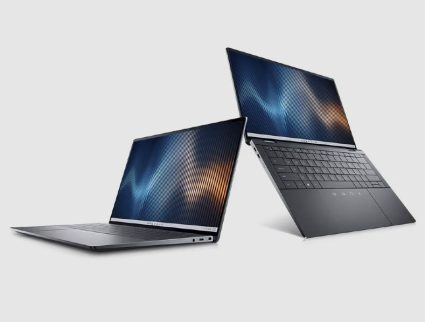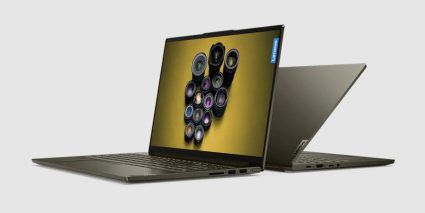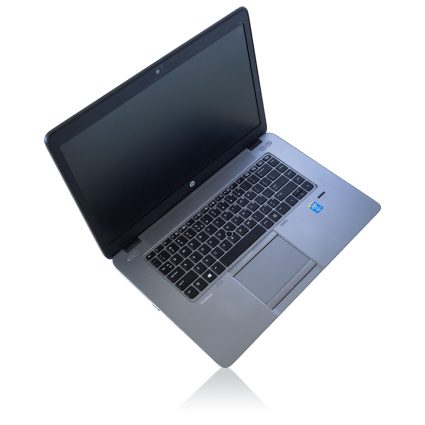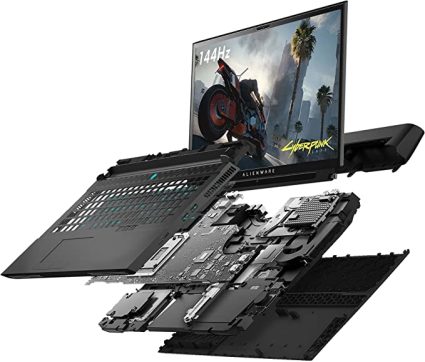
Choosing the right laptop for your needs is an important decision. With the wide variety of laptops available, it is important to understand your usage requirements in order to make the best choice. Factors such as size, performance, and budget should all be taken into consideration when making a laptop purchase.
Content of the page
When considering a laptop purchase, the first step is to assess your usage patterns. Do you need a laptop for work or school use? Are you a gamer or a creative professional? Are you looking for a laptop that is lightweight and portable? All of these questions are important to consider when selecting the right laptop for your needs.
Assessing Your Usage Patterns

Before you make a laptop purchase, it is important to assess your usage patterns. Are you looking for a laptop for work or school use? If so, you may want to look for a laptop with a larger screen and a powerful processor. If you are a gamer, you will likely want to look for a laptop with a powerful graphics card and a fast processor. If you are a creative professional, you may want to look for a laptop with a high-resolution display and a powerful processor.
It is also important to consider the portability of the laptop. Do you need a lightweight laptop that you can easily carry with you? If so, you may want to look for a laptop with a smaller screen and a lightweight design. If you are looking for a laptop that you can use as a desktop replacement, you may want to look for a laptop with a larger screen and a more powerful processor.
Identifying Your Required Specifications
Once you have identified your usage requirements, it is important to identify the specifications you will need in a laptop. Things to consider include the size of the screen, the processor speed, the amount of RAM, the graphics card, and the type of storage. If you are a creative professional, you may want to look for a laptop with a high-resolution display and a powerful processor. If you are a gamer, you may want to look for a laptop with a powerful graphics card and a fast processor.
It is also important to consider the battery life of the laptop you are considering. Some laptops have longer battery life than others, so consider how long you will need the laptop to last before needing to be recharged. Additionally, consider the weight of the laptop; if you plan to carry the laptop with you, you may want to look for a laptop that is lightweight and portable.
Considering Your Budget Constraints
The last step in choosing the right laptop is to consider your budget constraints. There are a wide variety of laptops available, ranging from budget models to high-end models. It is important to identify the features you need and then compare them to the prices of the various models available. You may also want to look for laptops on sale or refurbished models to help save money.
In addition to the price of the laptop, you should also consider the cost of accessories and software. A laptop purchase often requires the purchase of additional accessories such as a carrying case, external hard drive, or additional RAM. Additionally, you may need to purchase software such as an operating system or an antivirus program.
By taking the time to assess your usage requirements, identify your required specifications, and consider your budget constraints, you can make an informed decision when choosing the right laptop for your needs.
Exploring Your Options
When it comes to choosing the right laptop for your needs, it is important to explore all of your options. There are a number of factors to consider, including brand, operating system, processor, storage, and more. This guide aims to help you make an informed decision about the laptop that is best for you.
Comparing Laptop Brands
When shopping for a laptop, one of the first decisions you will need to make is which brand to choose. There are a variety of laptop brands on the market, and each has its own unique features and benefits. To help you decide which brand is right for you, let’s take a closer look at some of the top brands:
Apple

Apple laptops are known for their stylish designs and powerful processors. Their MacBook Pro and MacBook Air models are especially popular for their portability and performance. Apple laptops typically come with macOS, the company’s operating system, and many of their high-end models come with Touch ID, a fingerprint-based security feature.
Dell

Dell is one of the most popular laptop brands on the market. Their Inspiron line of laptops is popular for its affordability and performance. Dell laptops come with Windows 10 pre-installed, and many of their models come with features like a backlit keyboard and anti-glare display. Dell also offers a wide selection of gaming laptops.
Lenovo

Lenovo laptops are known for their durability and performance. Their ThinkPad and IdeaPad lines are popular for business professionals and everyday users alike. Lenovo laptops come with Windows 10 pre-installed, and many of their models come with features like a fingerprint reader and facial recognition.
HP

HP laptops are known for their affordability and performance. Their Pavilion and Envy lines are popular for their wide selection of models and features. HP laptops come with Windows 10 pre-installed, and many of their models come with features like a backlit keyboard and anti-glare display.
Acer

Acer laptops are known for their affordability and performance. Their Aspire and Switch lines are popular for their wide selection of models and features. Acer laptops come with Windows 10 pre-installed, and many of their models come with features like a backlit keyboard and anti-glare display.
Asus

Asus laptops are known for their performance and reliability. Their Zenbook and ROG lines are popular for their wide selection of models and features. Asus laptops come with Windows 10 pre-installed, and many of their models come with features like a backlit keyboard and anti-glare display.
When it comes to choosing the right laptop for your needs, there are many factors to consider. We hope this guide has helped you narrow down your search and make an informed decision.
Different Types of Laptops
When it comes to choosing the right laptop for your needs, it’s important to consider the different types of laptops available on the market. From ultraportable ultrabooks to powerful gaming laptops, there are a variety of form factors to choose from. Each laptop type excels in different areas, so it’s important to understand the differences in order to make the right choice.
Ultrabooks
Ultrabooks are designed to be ultraportable, offering a lightweight and slim design that makes them perfect for people on the go. These laptops are typically equipped with Intel’s U-series processors and feature solid-state storage and no optical drive, which allows them to maintain their thin profile. Ultrabooks usually have a battery life of around 8 hours and are perfect for web browsing, streaming media, and light productivity tasks.
Gaming Laptops
Gaming laptops are designed for serious gamers who demand maximum performance. These laptops are typically equipped with powerful Intel Core-i series processors and high-end graphics cards, allowing them to run the latest games at high settings. In addition to this, gaming laptops also feature larger displays, faster storage, and better cooling systems to ensure that they can keep up with the demands of modern gaming.
2-in-1 Laptops
2-in-1 laptops offer the best of both worlds, combining the portability of a laptop with the convenience of a tablet. These laptops are equipped with a touchscreen and can be easily converted into a tablet by folding the display back onto the keyboard. This makes them ideal for people who want the versatility of both a laptop and a tablet in one device.
Chromebooks
Chromebooks are a type of laptop that run Google’s Chrome OS operating system. These laptops are designed to be simple and efficient, offering a lightweight and affordable option for web browsing and productivity. Chromebooks typically feature long battery life and are great for people who don’t need a lot of power.
Traditional Laptops
Traditional laptops are the most common type of laptop and offer the best balance between portability and performance. These laptops are equipped with processors ranging from Intel’s U-series to their Core-i series and come in a variety of form factors. Traditional laptops are perfect for people who want a laptop that can handle everyday computing tasks like web browsing, streaming media, and productivity.
| Laptop Type | Description |
|---|---|
| Ultrabook | Slim and lightweight laptops with long battery life and high-end hardware specifications |
| Gaming laptop | Laptops designed for gaming with high-end hardware and dedicated graphics cards |
| Business laptop | Laptops designed for professionals with features like extended battery life, durability, and security |
| Convertible | Laptops that can be converted into a tablet by flipping the screen or detaching it from the keyboard |
| 2-in-1 | Laptops that can be used as a traditional laptop or as a tablet, with a 360-degree hinge or detachable screen |
| Chromebook | Laptops that run on Google’s Chrome OS and are designed for basic tasks such as web browsing and email |
| Budget laptop | Laptops with lower hardware specifications and lower price points |
| Workstation | Laptops designed for heavy-duty tasks like video editing and 3D modeling, with high-end hardware specs |
| Netbook | Small, lightweight laptops with basic features designed for basic tasks like web browsing and email |
Operating System Comparison
When choosing a laptop, it’s important to consider the different operating systems available. Each operating system offers different advantages and disadvantages, so it’s important to understand the differences in order to make the right choice.

Windows
Windows is the most popular operating system for laptops and is available on a wide variety of laptops. Windows offers a wide range of features, from a user-friendly interface to a large selection of software and games. Windows laptops are perfect for people who want a familiar and easy to use interface.
macOS
macOS is the operating system available on Apple’s MacBook laptops. macOS offers a clean and intuitive interface and comes with a wide range of exclusive software and features. macOS laptops are perfect for people who want a stylish, powerful, and easy to use laptop.
Chrome OS
Chrome OS is a lightweight operating system designed by Google and available on select Chromebooks. Chrome OS is designed to be simple and efficient, offering a user-friendly interface and a wide selection of web apps. Chrome OS laptops are perfect for people who want an affordable and easy to use laptop.
Evaluating Laptop Features

When choosing a laptop, it’s important to consider not just the price tag, but also the features that the laptop offers. Here are some factors to consider when evaluating laptop features:
Screen Size and Display Quality
The size of the laptop’s screen is an important factor to consider. Smaller screens are more portable, but can be difficult to use for tasks that require a lot of data input or multitasking. Larger screens can be more useful for productivity tasks, but may be too bulky to carry around.
In addition to size, display quality is also important. Higher resolution screens with more pixels per inch will provide sharper visuals and make it easier to work with multiple windows. Look for laptops with IPS or OLED displays for the best visuals.
Performance and Processing Power
When it comes to performance, processor speed is the most important factor. Look for laptops with Intel or AMD processors to get the best performance. Additionally, the amount of RAM in the laptop can also affect performance, so look for laptops with at least 8GB of RAM.
Graphics and Video Capabilities
For users who need to work with graphics or videos, dedicated graphics cards are a must. Look for laptops that have NVIDIA or AMD graphics cards for the best performance.
Battery Life and Portability
Battery life is an important factor for anyone who needs to work on the go. Look for laptops with long-lasting batteries and high-efficiency processors for the best battery life. Additionally, consider the size and weight of the laptop. Lighter and thinner laptops are more portable, but may sacrifice performance or battery life.
Keyboard and Touchpad Comfort and Usability
The keyboard and touchpad are important factors to consider when choosing a laptop. Look for laptops with comfortable and responsive keyboards and touchpads. Additionally, look for laptops with backlit keyboards, which can make it easier to work in dimly lit environments.
Connectivity and Ports
Finally, consider the laptop’s connectivity options. Look for laptops with the latest Wi-Fi and Bluetooth standards for the best performance. Additionally, look for laptops with plenty of ports, such as USB 3.0, USB-C, HDMI, and DisplayPort.
Researching and Comparing Laptop Reviews
When choosing the right laptop for your needs, it’s important to research and compare laptop reviews. While there are many different types of reviews available, including expert reviews and user reviews and ratings, each type of review can offer valuable insight into the laptop’s features, performance, and value.
Expert Reviews
Expert reviews are often conducted by independent organizations or individuals that specialize in technology products. These reviews are usually more in-depth than user reviews and ratings, and can provide detailed information about the laptop’s specs, design, performance, and value. They are also more objective and unbiased, as the reviewers are not affiliated with a particular brand or model.
User Reviews and Ratings
User reviews and ratings can provide a more subjective look at a laptop. They are usually written by people who have used the laptop in the past and can provide valuable insight into the laptop’s features, performance, and value. User reviews and ratings can also provide an indication of the customer service provided by the manufacturer.
Check the next tools and links to safely evaluate reviews when searching a laptop:
- ReviewMeta (https://reviewmeta.com/) is a website that analyzes Amazon product reviews and gives you an adjusted rating based on the reliability of the reviews. It uses an algorithm to identify and filter out fake or biased reviews, helping you make a more informed purchasing decision.
- Trustpilot (https://support.trustpilot.com/hc/en-us/articles/201839093-Write-a-review) is a platform where customers can leave reviews of products or services they have used. It provides a space for consumers to share their opinions and experiences with others, and for businesses to receive feedback from their customers.
- How to Evaluate Online Reviews (https://consumer.ftc.gov/articles/how-evaluate-online-reviews) is a guide provided by the Federal Trade Commission (FTC) that helps consumers identify fake or biased reviews. It provides tips on how to spot fake reviews and suggests steps consumers can take to ensure they are making informed purchasing decisions based on trustworthy reviews.
Conclusion
Choosing the right laptop for your needs can be a difficult task, but researching and comparing laptop reviews can make the process easier. Expert reviews are more objective and detailed, while user reviews and ratings can provide a more subjective look at the laptop. By researching and comparing both types of reviews, you can make an informed decision that best suits your needs.
